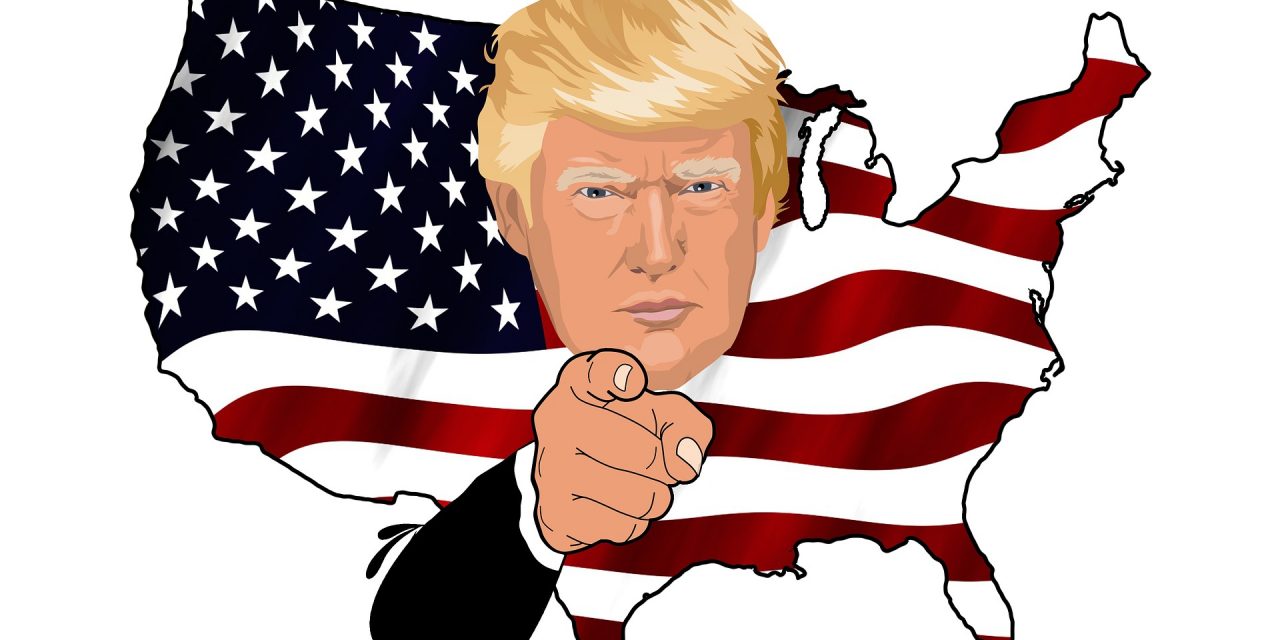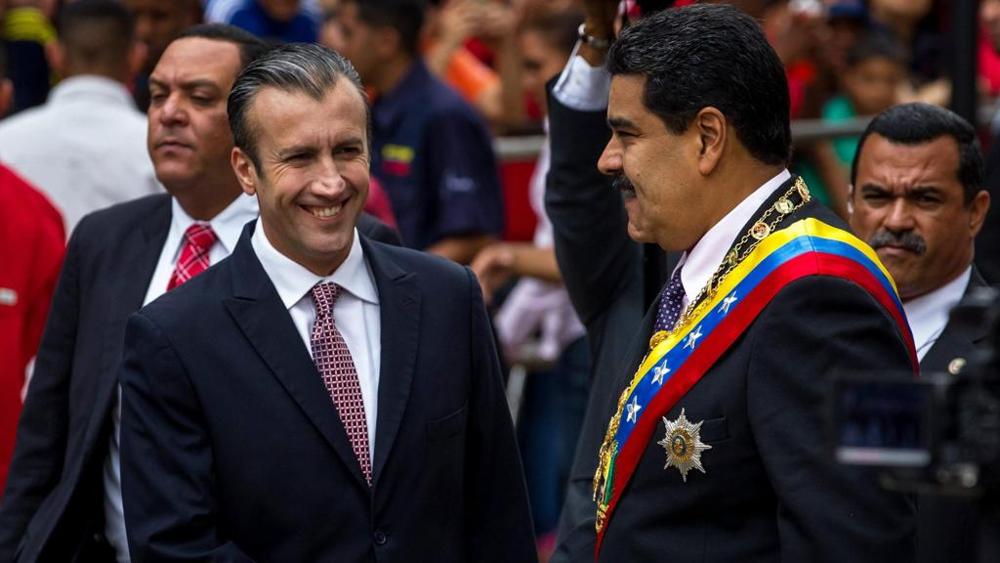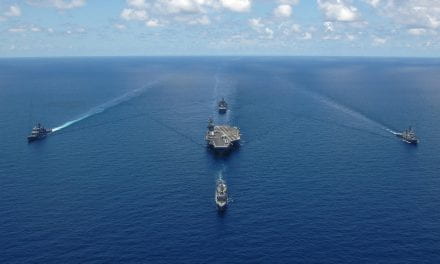By: Amna Rana*
On Thursday, March 22nd, 2018, President Donald Trump announced yet another change of staff. Per usual, the announcement was made on Twitter. Trump announced both the resignation of Herbert Raymond (H. R.) McMaster from the position of National Security Adviser and the appointment of John Bolton as McMaster’s replacement.[1] Not that Trump’s other staff changes haven’t been controversial, but the appointment of John Bolton is particularly alarming, because this decision is part of a larger pattern, namely the President’s “America First” foreign policy. Recently, Trump also fired Rex Tillerson as Secretary of State and replaced him with CIA Director, Mike Pompeo. The position of CIA Director was filled by CIA Deputy Director, Gina Haspel, who is notorious for using torture against prisoners at CIA “black sites.”[2] Mike Pompeo is known as a hardline Republican and Trump loyalist, who opposed Obama’s Iran nuclear deal and has defended CIA’s torture tactics as well as Guantanamo Bay.[3] The newest addition to Trump’s national security team, John Bolton, is known for his “deeply conservative, nationalistic and aggressive views about American foreign policy.”[4]
Trump’s overhaul of his national security team is in line with some of his recent nationalistic and protectionist foreign policy decisions, such as pulling out of the Paris climate agreement, threatening tariffs, and taking a hard stance against countries like North Korea. This ‘purge’ is worrisome, because the President has assembled a team of individuals whose views match his views in order to ensure that they will support his decisions. The fact that Trump’s inner circle is dominated by such hardline nationalists means that moderate perspectives are likely to be ignored, which is particularly troubling, because Donald Trump’s recent foreign policies are alienating not only America’s enemies and competitors, but also its allies. What’s worse is that despite the rhetoric of American nationalism surrounding such policies, these policies will not benefit America. Instead, they are likely to prove counterproductive to President Trump’s ‘America First’ vision, as they will diminish America’s power in world politics and economy and make room for other actors to grab power.
The President has often sent mixed signals to America’s enemies and competitors, countries that are capable of disrupting world peace and the global economy. Over the last year, Trump repeatedly threatened North Korea and Kim Jong-un with tough action in order to halt the country’s nuclear weapons program. He tweeted on January 2, 2018, “North Korean Leader Kim Jong Un just stated that the ‘Nuclear Button is on his desk at all times.’ Will someone from his depleted and food starved regime please inform him that I too have a Nuclear Button, but it is a much bigger & more powerful one than his, and my Button works!” and repeatedly referred to Kim Jong-un as “Rocket man.”[5] In this manner, Trump has effectively jeopardized world peace by threatening nuclear warfare with the rogue regime of North Korea. His policy towards North Korea reflected his hardline views that North Korea must either denuclearize or face military action, views that the new members of his national security team, such as Bolton, share with him.[6] However, Trump recently surprised the entire world by accepting North Korea’s invitation to have direct negotiations regarding its nuclear program.[7]
In another example of his inconsistency, President Trump has sent mixed messages to America’s main economic competitor, China. While Trump has often praised the leadership of the Chinese leader Xi Jinping, he has also repeatedly warned China that its trade deficit with the U.S. is too large. He threatened the imposition of tariffs as a way to overcome this deficit, thereby threatening a trade war. After threatening to place tariffs on China for a few weeks, as of April 4, 2018, the Trump administration imposed a 25% tariff on more than 1300 Chinese products.[8] China, responding to Trump’s threats of imposing tariffs, retaliated by putting tariffs as high as 25% on 128 American products.[9] This can have huge implications for the world because U.S. and China are the world’s largest economies. Furthermore, China is America’s biggest trading partner, as trade with China consists of nearly 17% of America’s total trade.[10] Thus, a trade war between the U.S. and China will be a massive blow to not only the Chinese economy, but also the American and global economy. Yet, despite placing tariffs on China, Donald Trump tweeted, “President Xi and I will always be friends, no matter what happens with our dispute on trade,” thereby invoking friendship amidst tense trade disputes.[11] Sending such mixed messages to countries that are already not on the most amicable terms with the U.S. has substantially decreased the stability of world politics as well as the possibility of continued peace.
Additionally, Trump’s policies have also endangered America’s relationships with its allies and its role as the leader of the liberal international order. There are many examples, from the administration’s withdrawal from the Paris climate change agreement to Mr. Trump’s decision to cut U.N. funding by $285 million.[12] However, the most recent example is his threat to impose tariffs that target America’s allies, competitors, and international organizations. On Thursday March 1, 2018, Donald Trump announced that he will impose tariffs of 25% on steel goods and 10% on aluminum products, taxing “every shipment of those metals into the United States.”[13] This move shocked more American allies, such as the European Union, South Korea, and Japan, than competitors, like China. Many American allies, particularly in Europe, responded firmly by stating their stance against protectionism.[14] Still, they are reliant on U.S. trade, and so, this move placed them in a very difficult situation, where they could not do much more than displaying disappointment. Countries like South Korea gave in and negotiated a new free trade deal to be exempt from the tariffs.[15] Responding to the concerns of American allies, Trump did exempt a few allies, including the European Union, Australia, Brazil, Argentina, and South Korea, from the tariffs.[16] Still, even though the initial conflict of tariffs was resolved, Donald Trump’s inconsistent policies unnecessarily scarred America’s relationship with its allies,
However, tariffs still remain imposed on other countries, and they continue to burden America’s relationship with other countries as well as international organizations. China threatened to respond to American tariffs with its own tariffs on $3 billion worth of American goods, thereby further increasing the potential of a trade war.[17] Finally, these tariffs also reflect President Trump’s disregard for international organizations, because they break rules set by the World Trade Organization (WTO). According to some, this move makes the WTO irrelevant, as it demonstrates that the organization’s rules can be broken by other countries as well.[18] This is an incredibly poor precedent set by the Trump administration, as there are few ways to enforce international agreements and rules apart from treating them as common norms. In this way, his policies represent a major setback for the liberal international order as well as American leadership of this order.
Placing tariffs, in particular, is a horrible decision because it defies basic principles of free trade, and therefore, is not economically sound. Economic principles promote free trade because it allows countries to access goods that are scarce in their domain, specialize in the development of certain goods and services, lower the cost of production by specializing, and keep prices low for the consumers. With tariffs, the prices of most steel and aluminum products will rise in America, hurting consumers more than anyone else. Most economists agree that free trade is more beneficial for the economy than protectionism. As Dr. Wonnacott, an economics professor explained, “Trade is like technological change. Both provide benefits by increasing efficiency and lowering price. While both eventually offer greater opportunity and eventually new jobs, both in the short term displace some workers. This provides a platform for populist politicians.”[19] Wonnacott was in fact referring to Trump’s populist policies. He explained that despite the short-term negative consequences of trade and specialization in production, the long-term benefits are clearly greater.
However, such a protectionist and nationalistic American policy has further consequences as well, including political ones. First of all, the liberal international order that we have today, which is based on principles of sovereignty and cooperation, was built by America itself. After World War II, the U.S. became the sole superpower of the world (for a few years until the Cold War), as it was the only major power which was not completely destroyed by the war. Thereafter, America helped rebuild Europe by funding its development because doing so would benefit both Europe and the U.S., as the U.S. also needed European trade to keep its own economy flourishing. In addition, the U.S. promoted international cooperation to avoid major conflicts such as WWII from occurring again. The U.S. was one of the sponsors behind the creation of the United Nations. Through such initiatives, the U.S. became the de facto world leader and the leader of a cooperative international order. Thus, policies that deteriorate this order are against American values and will test America’s leadership in the world. In fact, John Ikenberry notes that the U.S. is already losing influence over the liberal international order, albeit slowly. However, he proposed a potential order in which “the United States would give up some of its hegemonic rights and privileges but retain others. In economic and political realms, it would yield authority and accommodate rising states. The United States would share authority within the reformed Bretton Woods institutions. In security realms, however, the United States would retain its hegemonic position.”[20] However, the U.S. cannot retain this security, or even its economic leadership, if it continues to pursue protectionist policies and alienate other countries in this manner.
Furthermore, since politics do boil down to power, especially for Trump and his administration, let’s discuss power. As America’s involvement in the world increased through helping Europe and through America’s Cold War endeavors, America’s acquired more soft power over time. More and more countries and international organization started relying on the U.S., which allowed the U.S. to pursue its own interests. Soft power and the support of American allies is extremely important in order to exercise leverage in international politics. Political scientist Joseph Nye describes soft power and its significance as follows: “This soft power – getting others to want the outcomes that you want – co-opts people rather than coerces them… The ability to establish preferences tends to be associated with intangible assets such as an attractive personality, culture, political values and institutions, and policies that are seen as legitimate or having moral authority.”[21] Thus, being able to influence others’ decisions provides legitimacy to American foreign policies because other countries want to support America. In this manner, not only is soft power more effective, but also less costly (especially in terms of human cost) than hard power such as military action, which is often proposed by Trump. Protectionist policies that alienate American allies will push America into isolation, leaving a power vacuum to be filled by America’s competitors. Right now, China is not even close to catching up to American power (including soft power); however, Trump’s so-called America first policies will allow China to narrow the gap by diminishing America’s influence in the international system. In this manner, these policies are counterproductive to their stated purpose of promoting American interests.
Someone needs to tell Trump that his policies will hurt America first. Wait… oh that’s right, there is no one around him to tell him so because he has purposely surrounded himself with people that agree with him. This is how the appointment of Bolton and others like him is likely to further radicalize Trump’s foreign policy. The elimination of moderate voices from the White House, a move that is in line with Trump’s protectionist and nationalistic agenda, not only defeats the purpose of democracy, but it could alter the liberal international order and potentially lead to America’s diminished power in world politics. If Trump and his team continue in this manner, they will change world politics against America’s interests significantly, and perhaps permanently.
[1] Zach Beauchamp, “John Bolton, Trump’s Ultra-hawkish New National Security Adviser, Explained,” Vox, March 22, 2018, accessed March 25, 2018, https://www.vox.com/world/2018/3/22/17153338/john-bolton-national-security-adviser-trump-hr-mcmaster.
[2] Ashley Parker, Philip Rucker, John Hudson and Carol D. Leonnig, “Trump ousts Tillerson, will replace him as secretary of state with CIA chief Pompeo,” Washington Post, March 13, 2018, accessed March 25, 2018, https://www.washingtonpost.com/politics/trump-ousts-tillerson-will-replace-him-as-secretary-of-state-with-cia-chief-pompeo/2018/03/13/30f34eea-26ba-11e8-b79d-f3d931db7f68_story.html?utm_term=.f28579f5a05f.
[3] “Mike Pompeo: Trump’s loyalist new diplomat and ex-spymaster,” BBC, March 13, 2018, accessed March 25, 2018, http://www.bbc.com/news/world-us-canada-38029336.
[4] Stephen Erlanger and Gerry Mullany, “’The Whole World Should Be Concerned’: U.S. Allies React to Bolton’s Appointment,” New York Times, March 23, 2018, accessed March 25 2018, https://www.nytimes.com/2018/03/23/world/asia/trump-john-bolton-reaction.html?rref=collection%2Fsectioncollection%2Fworld&action=click&contentCollection=world®ion=rank&module=package&version=highlights&contentPlacement=10&pgtype=sectionfront.
[5] Donald Trump quoted in Eli Watkins, “Trump taunts North Korea: My nuclear button is ‘much bigger,’ ‘more powerful’,” CNN, January 3, 2018, accessed March 25, 2018, https://www.cnn.com/2018/01/02/politics/donald-trump-north-korea-nuclear/index.html.
[6] Erlanger and Mullany, “’The Whole World Should Be Concerned.’”
[7] Mark Landler, “North Korea Asks for Direct Nuclear Talks, and Trump Agrees,” New York Times, March 2, 2018, accessed March 25, 2018, https://www.nytimes.com/2018/03/08/us/politics/north-korea-kim-jong-un-trump.html.
[8] Ana Swanson, “ White House Unveils Tariffs on 1300 Chinese Products,” April 3, 2018, accessed April 10, 2018, https://www.nytimes.com/2018/04/03/us/politics/white-house-chinese-imports-tariffs.html.
[9] Chris Buckley, “China Slaps Tariffs on 128 U.S. Products, Including Wine, Pork, and Pipes,” New York Times, April 1, 2018, accessed April 10, 2018, https://www.nytimes.com/2018/04/01/world/asia/china-tariffs-united-states.html?hp&action=click&pgtype=Homepage&clickSource=story-heading&module=first-column-region®ion=top-news&WT.nav=top-news.
[10] “Top Trading Partners – March 2018,” The U.S. Census Bureau, accessed March 26, 2018, https://www.census.gov/foreign-trade/statistics/highlights/toppartners.html.
[11] David Jackson, “Donald Trump vows friendship with China – but also victory on trade as tariffs mount,” USA Today, April 8, 2018, accessed April 10, 2018, https://www.usatoday.com/story/news/politics/2018/04/08/donald-trump-vows-friendship-china-but-also-victory-trade-tariffs-mount/497049002/.
[12] Nicole Goodking, “President Trump Cuts Funding to the UN After Israel Vote,” Newsweek, December 25, 2017, accessed March 25, 2018, http://www.newsweek.com/united-nations-donald-trump-nikki-haley-jerusalem-funding-758849.
[13] Ana Swanson, “Trump to Impose Sweeping Steel and Aluminum Tariffs,” New York Times, March 2, 2018, accessed March 25, 2018, https://www.nytimes.com/2018/03/01/business/trump-tariffs.html.
[14] The New York Times, “Strong Reactions to U.S. Trade Moves,” New York Times, March 24, 2018, accessed March 25, 2018, https://www.nytimes.com/2018/03/24/business/trade-tariffs-quotes-reactions.html?rref=collection%2Fsectioncollection%2Fworld&action=click&contentCollection=world®ion=stream&module=stream_unit&version=latest&contentPlacement=6&pgtype=sectionfront.
[15] Alan Rappeport and Prashant S. Rao, “Trump Gets First Major Trade Deal, As South Korea Looks to Avoid Tariffs,” New York Times, March 26, 2018, accessed March 26, 2018, https://www.nytimes.com/2018/03/26/business/south-korea-us-tariffs.html?rref=collection%2Fsectioncollection%2Fworld&action=click&contentCollection=world®ion=stream&module=stream_unit&version=latest&contentPlacement=1&pgtype=sectionfront.
[16] Sabrina Rodriguez, “Trump Exempts EU, 4 other allies from steel, aluminum tariffs,” Politico, March 22, 2018, accessed March 26, 2018, https://www.politico.com/story/2018/03/22/trump-tariff-exemptions-479419.
[17] The Associated Press, “China’s Economic Czar Warns the U.S. Treasury Secretary on Tariffs,” New York Times, March 24, 2018, accessed March 25, 2018, https://www.nytimes.com/2018/03/24/world/asia/china-trade-mnuchin.html?rref=collection%2Fsectioncollection%2Fworld&action=click&contentCollection=world®ion=stream&module=stream_unit&version=latest&contentPlacement=1&pgtype=sectionfront.
[18] Peter S. Goodman, “Trump Just Pushed the World Trade Organization Towards Irrelevance,” New York Times, March 23, 2018, accessed March 26, 2018, https://www.nytimes.com/2018/03/23/business/trump-world-trade-organization.html.
[19] Dr. Ron Wonnacott quoted in Fred Langan “Ron Wonnacott Academic, 87; Economist Believed in Benefits of Free Trade; Contrary to Donald Trump, he believed that reducing tariffs would result in maximum productivity benefits for the economy,” Globe and Mail, March 6, 2018, accessed April 15, 2018, http://www-lexisnexis-com.proxy-tu.researchport.umd.edu/hottopics/lnacademic/?verb=sr&csi=303830&sr=HEADLINE(ECONOMIST+BELIEVED+IN+BENEFITS+OF+FREE+TRADE)%2BAND%2BDATE%2BIS%2B2018.
[20] John Ikenberry, “Liberal Internationalism 3.0: America and the Dilemmas of Liberal World Order,” Perspectives on Politics 7 no. 1 (March 2009), accessed April 10, 2018, 82, http://www.jstor.org/stable/40407217.
[21] Joseph Nye, “Public Diplomacy and Soft Power,” The Annals of the American Academy of Political and Social Science, 616 (March 2008), accessed April 20, 2018, 95, http://www.jstor.org/stable/25097996?seq=1#page_scan_tab_contents.
*Disclaimer: The content contained in the following material is the sole ownership of the author and does not reflect the views of the Towson University Journal of International Affairs nor Towson University in any respect whatsoever.







